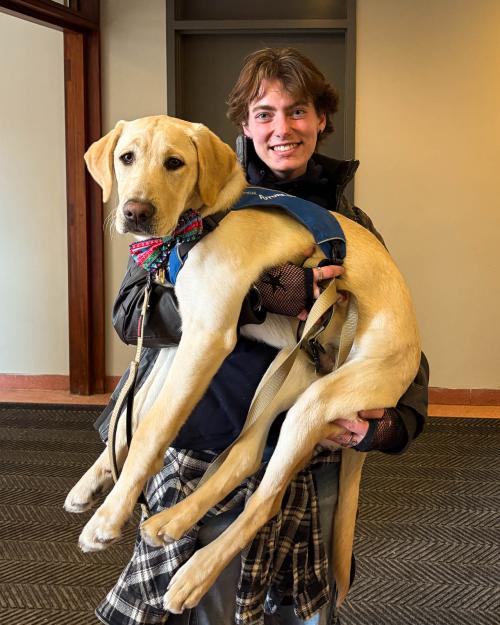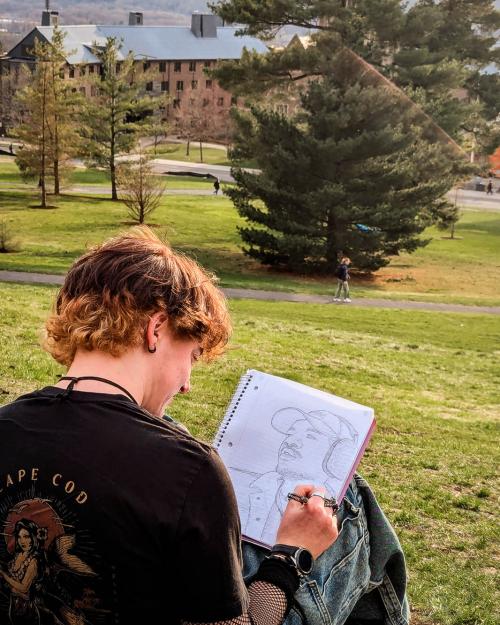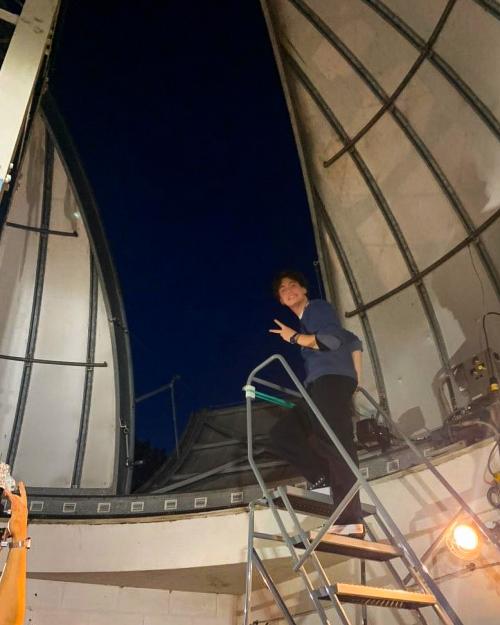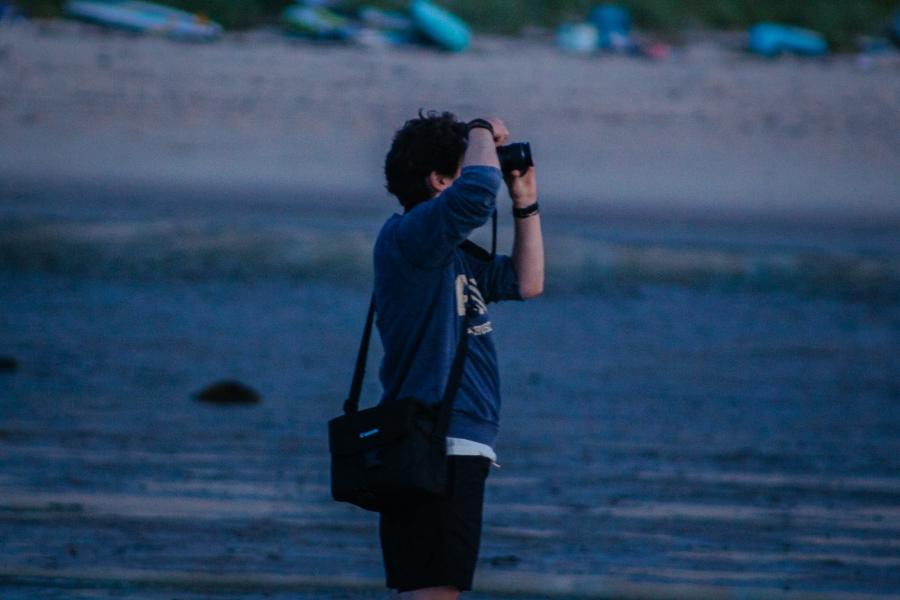Neal Jerome
Astronomy
Lunenburg, Mass.
What is your main extracurricular activity and why is it important to you?

My involvement with the Guiding Eyes at Cornell club here has been nothing less than an absolute delight each semester. Guiding Eyes consists of dog raisers and sitters who help train puppies to be Seeing Eye dogs for the visually-impaired. As a sitter in the club, I work with several of our pups on campus throughout the week for 1-3 hours at a time. We help them learn to be confident in busy environments, train commands and etiquette as service animals, develop confidence in themselves and their handlers, as well as ensure that the pups are cared for and given plenty of play time, too. The opportunity to witness these dogs' journeys as guide dogs and contribute to the betterment of disabled peoples' lives — spreading awareness and encouraging accessibility both here and across the country — is immensely important to me. I am thankful to have been able to be as involved as I have been with Guiding Eyes. The members of this club are some of the most kindhearted, devoted people I have met on campus, and our pups certainly never fail to make me smile, either.
What are the most valuable skills you gained from your Arts & Sciences education?

I've become significantly more comfortable reaching out to professors and peers for help throughout my education in Arts & Sciences. Prior to college, I likely would not have considered asking others for class-related or future career advice, but I have come to see the value in making those connections. Oftentimes, professors and postdocs are more than willing to help guide you in the right direction; they are ecstatic to share their experiences. Other students, too, have been immensely helpful in exchanging resources and encouraging me to push myself.
What have you accomplished as a Cornell student that you are most proud of?

I have worked with the Carl Sagan Institute for nearly all of my semesters here at Cornell, and I could not be more grateful for the experience and exposure it has given me. Getting to know the various fields that contribute to our search for life in the universe through this research group is always truly thrilling. On all levels — undergrads, graduate students, postdocs, professors — each person has a unique background that they are happy to bring to the table. Through them, I've done several research projects that I'm proud of. I've worked on a code-based project characterizing exoplanets, a literature search on biosignatures and hydrothermal activity on icy moons Enceladus and Europa, and my current project which involves working in the lab to conduct reflectance spectroscopy of soil and biota samples. With this last project, we'll be able to compile a catalogue of soils that will inform us about what kinds of surfaces we may be looking at on planets outside of our solar system. Having hands-on experience in the lab with this research has been instrumental in my understanding of what I'm hoping to do in my future; without this research, I might not have discovered my love of laboratory work, and I am tremendously thankful for having found what is now such an intense passion of mine!
How have your beliefs or perspectives changed since you first arrived at Cornell?
It may come as no surprise that the "any person, any study" motto has rung true for me; Cornell has helped me grow more confident in expanding my horizons and trying new things. I have always been someone who keeps more to themselves, but these past few years have helped me broaden my comfort zone. Taking ASL classes encouraged me to grow more comfortable with conversing with classmates and be more expressive with the way I communicate. In my junior year, I took a graduate level course on planetary surface processes and ended up going on a spring break trip to Death Valley, California to examine planetary analogues in the desert; I had never been to the West Coast before, and seeing such beautiful views of mountains, dunes and caves was exhilarating. I grew close to many grad students in the astronomy department through that trip, too. Cornell's wide variety of PE classes also allowed me to discover a love for circus! I took the "Intro to Circus Arts" course in my senior fall, giving me the chance to try out juggling, trapeze, silks aerials, lyra and more. I had a fantastic time learning new skills in an environment that encouraged you to be silly and prioritize having fun.

Every year, our faculty nominate graduating Arts & Sciences students to be featured as part of our Extraordinary Journeys series.Read more about the Class of 2025.




